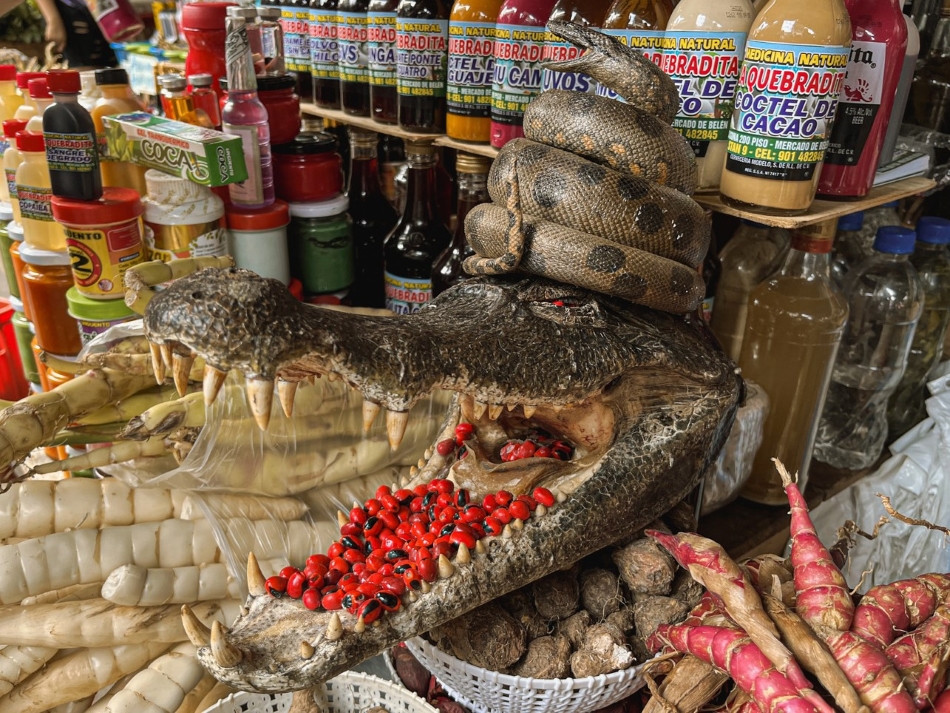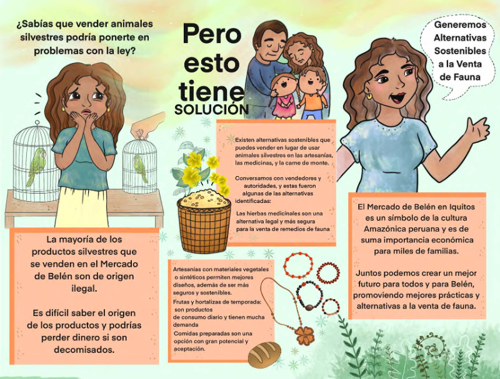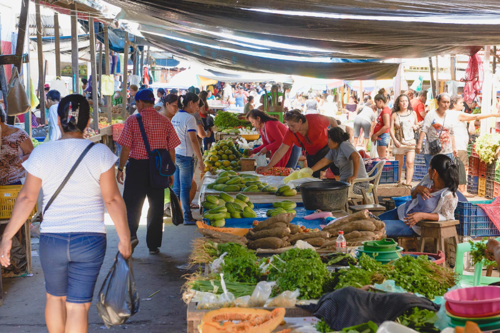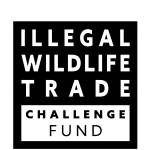Transforming lives and markets in Peru

A caiman crocodile head and anaconda at Belén Market, in Iquitos, Peru. Credit - Neil D’Cruze, World Animal Protection.
Transforming lives and markets: Working with vendors to reduce demand for wildlife products in Peru
Belén Market, the largest open-air market in Peru, is notorious for illegal wildlife trade (IWT), impacting more than 200 species, 9% of which are threatened by extinction and 35% have declining populations. This trade also threatens local communities, with poor animal welfare and unsanitary conditions posing severe public health risks.
Belén district is one of the poorest areas in Iquitos, with a third of the population living below the poverty line. Recognising that law enforcement alone will not stop IWT, World Animal Protection and the Peruvian Society for Environmental Law (Sociedad Peruana de Derecho Ambiental (SPDA)) are directly engaging with vendors to reduce IWT and promote humane and sustainable alternative livelihoods.
Our Evidence project aims to understand why vendors engage in IWT, their openness to legal sustainable alternatives, and the challenges and opportunities they face.
"Ensuring that women, who are often disproportionately impacted by IWT, are included in our initiatives has led to more inclusive and equitable outcomes."
Engaging with vendors: A collaborative approach
Our mixed methods approach began with detailed attitude surveys conducted with 130 Belén Market vendors. This survey provided valuable data on vendor practices and their dependence on IWT. It also facilitated trust-building, allowing them to raise their views on this sensitive topic, setting the stage for deeper engagement.
Next, we held a livelihoods workshop attended by 16 Belén Market vendors that were engaged in selling bush meat (including paca, peccary, primates, tapir, and deer) and wild animal origin handicrafts. Here, vendors discussed and explored alternative non-wildlife-based products including locally prepared regional dishes, fruits and vegetables, staple foods, and handicrafts made from fabrics or synthetic materials.
Encouragingly, all 11 vendors that took part in the post workshop questionnaire expressed interest in further training and support, and more than half stated that they were interested in the prospect of selling non wildlife products in the future.
Ongoing dialogue with key government authorities at regional and national levels in Peru has been instrumental in exploring supportive measures and policies. We organised a key stakeholder workshop to discuss existing and future initiatives, aiming for broad commitment to help vendors transition to sustainable, legal livelihoods.
Government stakeholders identified opportunities to generate income at a regional level from producing non-wildlife-based handicrafts and local produce. They also affirmed that supporting vendor transitions to these alternative livelihoods is a priority to ensure sustainability and prevent wildlife trafficking.
We used these insights to create an initial guidance document for vendors. A preliminary toolkit was validated with 10 vendors and is being distributed to over 100 vendors at Belén Market. It offers practical steps for transitioning to sustainable livelihoods, further supporting our ongoing efforts to reduce IWT.

Lessons learned: Trust, communication, and inclusion
We found that building trust with vendors is essential. Regular and transparent communication has helped to overcome resistance and facilitate collaboration. Understanding and integrating local knowledge into our strategies has also been crucial for ensuring their acceptance.
Ensuring that women, who are often disproportionately impacted by IWT, are included in our initiatives has also led to more inclusive and equitable outcomes. This approach has helped to promote gender considerations, making our efforts more comprehensive and impactful.
Increased engagement with vendors suggests a growing openness and willingness to consider legal, humane alternative livelihoods. This promising trend underscores the potential of vendor engagement as a valuable yet underutilised strategy in addressing IWT.

Next steps: Sustaining the momentum
Our mixed methods approach, combining surveys and workshops with Belén Market vendors and key government stakeholders has been an important pillar of our wider project which has also provided a baseline of IWT activity at Belén Market and detailed insights into what type of messaging can best dissuade consumers from purchasing IWT products.
Looking ahead, we will continue to support vendors, as we move from evidence gathering to the implementation phase of our work. By enabling a transition to legal, sustainable livelihoods, our goal is to significantly reduce IWT at Belén Market and enhance the wellbeing of the local community.
Our project demonstrates the power of community engagement in addressing IWT. By directly involving vendors and offering viable alternatives, we are making strides towards a more sustainable and ethical market in Iquitos. We hope our experience will serve as a model for similar efforts elsewhere in Peru, the Amazon region, and beyond.

Written by Neil D’Cruze, Angie Elwin, Eyob Asfaw, Maddie Pinkess, Ester Mora, Roberto Vieto, and Eugenia Morales. For more information on this IWT Challenge Fund Evidence project IWTEV007, led by World Animal Protection, please click here.

 Back
Back